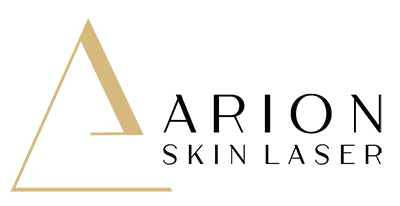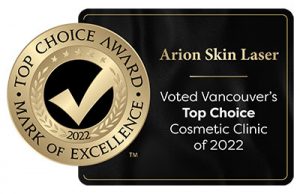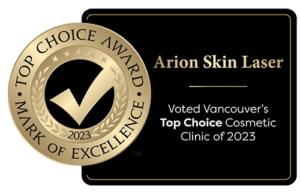Introduction to the Evolution of Skincare Technologies
The skincare industry has witnessed a remarkable transformation over the years, with the integration of advanced technologies playing a pivotal role. From traditional methods to high-tech solutions, the evolution of skincare technologies is a testament to the industry’s commitment to innovation and effectiveness.
The Rise of Skincare Technologies in the Beauty Industry
Overview of the Historical Development of Skincare Technologies
The journey of skincare technologies began with simple herbal treatments and has evolved into a sophisticated arena of scientific advancements. In the early days, skincare was primarily based on natural remedies and traditional practices. However, the 20th century marked a significant shift with the introduction of scientifically formulated products and treatments. The advent of technologies such as laser therapy, microdermabrasion, and chemical peels in the late 20th century further revolutionized skincare, offering more targeted and efficient treatments.
The Impact of Technological Advancements on Skincare Practices
The impact of these technological advancements cannot be overstated. They have not only enhanced the effectiveness of skincare treatments but also made them more accessible and customizable. For instance, laser technology has made it possible to address various skin concerns, including aging, pigmentation, and acne scars, with precision and minimal downtime. Similarly, the development of non-invasive treatments like LED light therapy and ultrasound has opened up new possibilities for skin rejuvenation and maintenance, catering to a broader audience seeking skincare solutions.
Current Trends in Skincare Technology
Analysis of Current Popular Skincare Technologies
In recent years, the skincare industry has seen an influx of innovative technologies that are shaping the future of skincare. One of the most notable trends is the use of artificial intelligence (AI) and machine learning to create personalized skincare regimens. Companies are leveraging AI to analyze skin types and conditions, offering tailored product recommendations and treatment plans. Another emerging trend is the use of biotechnology in developing advanced skincare formulations, utilizing natural processes and ingredients to create effective and sustainable products.
The Role of Digital Transformation in Shaping Modern Skincare Solutions
Digital transformation has been a game-changer in the skincare industry. The emergence of tele-dermatology and mobile applications for skin analysis has made skincare more accessible, allowing individuals to receive professional consultations and personalized advice from the comfort of their homes. Additionally, the integration of augmented reality (AR) in skincare apps enables users to visualize the effects of skincare products and treatments virtually, enhancing the decision-making process. This digital evolution not only enriches the customer experience but also paves the way for more innovative and interactive skincare solutions.
Breakthrough Innovations in Skincare Technologies
The skincare industry is on the brink of a technological revolution, with groundbreaking innovations that promise to redefine beauty standards and skincare efficacy. These advancements are not just enhancing the existing skincare protocols but are paving the way for entirely new approaches to skin health and beauty.
Advancements in Personalized Skincare Solutions
Exploration of AI and Machine Learning in Creating Personalized Skincare Regimens
The integration of AI and machine learning in skincare is revolutionizing the way products and treatments are developed and recommended. AI algorithms analyze vast amounts of data, including skin types, conditions, genetic information, and lifestyle factors, to create highly personalized skincare regimens. This technology enables skincare professionals to offer bespoke solutions that cater to individual skin needs more accurately than ever before.
For instance, AI-powered imaging technologies can assess skin characteristics such as texture, tone, hydration levels, and the presence of various conditions like acne or hyperpigmentation. Based on this analysis, machine learning algorithms can then suggest products, routines, and treatments that are most likely to be effective for the specific skin concerns identified.
Case Studies of Successful Personalized Skincare Technologies
One notable example is the use of AI in diagnostic tools developed by skincare brands. These tools analyze users’ skin photos uploaded via a smartphone app and recommend products tailored to their unique skin needs. Another innovation involves DNA-based skincare, where products are customized based on genetic analysis, targeting the root causes of skin concerns at a molecular level.
Emerging Technologies in Skincare Treatments
Overview of Cutting-edge Technologies like Nanotechnology and Biotechnology in Skincare
Nanotechnology and biotechnology are at the forefront of skincare innovation, offering solutions that were once thought impossible. Nanotechnology involves the use of tiny particles to enhance product penetration and efficacy. These nanoparticles can deliver active ingredients deeper into the skin, improving the effectiveness of skincare products without compromising the skin barrier.
Biotechnology, on the other hand, leverages biological processes and organisms to develop skincare products. This includes the use of bio-fermentation to create more potent and skin-friendly ingredients. Biotech advancements have also led to the development of bioengineered ingredients that mimic natural skin components, offering superior hydration and rejuvenation benefits.
How These Technologies are Changing Treatment Effectiveness and Safety
The impact of these technologies extends beyond just the superficial aspects of skincare. They offer transformative changes in how skin issues are treated and prevented. For instance, nanotechnology enables targeted therapy for skin conditions, reducing side effects and increasing treatment efficacy. Similarly, biotechnology-derived ingredients are often more compatible with the skin’s natural biology, reducing the risk of irritation and allergic reactions.
Moreover, these technologies contribute to the sustainability of the skincare industry. Biotech ingredients often require fewer resources and generate less waste compared to traditional ingredients, aligning skincare with environmental conservation.
The Role of Wearable and Mobile Skincare Technologies
The digital era has ushered in an array of wearable and mobile technologies that are dramatically altering the landscape of skincare. These advancements are not only enhancing the convenience and accessibility of skincare management but are also offering new dimensions of personalization and effectiveness.
Wearable Devices Transforming Skincare Routines
Discussion on the Latest Wearable Skincare Technology Trends
Wearable skincare technology is one of the most exciting trends in the beauty industry. These devices range from smart patches that analyze skin hydration levels to wearable UV sensors that track sun exposure in real-time. They represent a significant leap from traditional skincare methods, offering a blend of science, technology, and convenience.
For example, smart masks equipped with LED therapy offer personalized skincare treatments at home, emitting specific light wavelengths to target various skin issues, such as acne, aging, and hyperpigmentation. Similarly, wearable sensors that monitor environmental factors affecting skin health, like pollution and humidity, are becoming increasingly popular. These devices provide users with real-time data to adjust their skincare routines accordingly.
The Effectiveness and User Experience of These Devices
The effectiveness of these wearable devices is supported by a growing body of research. Studies have shown that consistent use of LED therapy can lead to significant improvements in skin condition. Users report not only enhanced skin appearance but also an enjoyable and convenient experience that seamlessly integrates into their daily routines.
Moreover, the real-time feedback and personalized data these devices offer lead to more informed skincare choices, fostering a proactive approach to skin health. The user experience is further enriched by sleek designs and user-friendly interfaces, making high-tech skincare both accessible and appealing to a broad audience.
Mobile Applications and Skincare Management
The Surge in Mobile App Development for Skincare Analysis and Tracking
Parallel to the rise of wearable devices is the surge in mobile applications dedicated to skincare analysis and management. These apps employ advanced technologies like artificial intelligence and augmented reality to offer personalized skincare assessments and advice. Users can upload photos of their skin to receive instant analysis and product recommendations, track changes over time, and even test the look of skincare products virtually.
How These Apps Integrate with Other Skincare Technologies
What makes these apps particularly revolutionary is their ability to integrate with other skincare technologies. For instance, some apps can sync with wearable devices, providing a comprehensive overview of skin health by combining data from both sources. This integration allows for a more holistic approach to skincare, where external factors, personal habits, and skin condition are all considered in developing a personalized skincare regimen.
Furthermore, these apps often serve as platforms for tele-dermatology, connecting users with skincare professionals for remote consultations. This feature has become especially valuable in the context of the recent global health crisis, ensuring uninterrupted access to professional skincare advice.
The Future Outlook of Skincare Technologies
As we delve into the future outlook of skincare technologies, it’s evident that the industry is on the cusp of significant transformation. With rapid advancements in science and technology, the next decade promises exciting developments that could redefine skincare routines and treatments.
Predictions for the Next Decade in Skincare Tech
Expert Predictions and Industry Insights into Future Skincare Technologies
Experts in the field are forecasting revolutionary changes in skincare technology over the next decade. One of the key predictions is the rise of personalized skincare to a new level, where treatments and products will be tailored not just to skin type but also to genetic makeup. Advances in genomics and biotechnology are expected to enable skincare solutions that are highly customized to individual genetic profiles, offering unprecedented efficacy.
Another anticipated development is the integration of augmented reality (AR) and virtual reality (VR) in skincare. These technologies are predicted to enhance the customer experience, allowing for virtual skin assessments and the ability to visualize the effects of skincare treatments and products in real-time. This could greatly assist consumers in making informed decisions about their skincare choices.
Potential Breakthroughs and Their Implications for Consumers and Manufacturers
Future breakthroughs in nanotechnology are expected to revolutionize the way active ingredients are delivered to the skin. Nanoparticles could enable deeper penetration of ingredients, making products more effective while reducing side effects. This advancement has significant implications for both consumers and manufacturers, as it could lead to more potent and safer skincare products.
There is also potential for advancements in wearable skincare technology, with devices becoming more sophisticated in monitoring skin health and delivering targeted treatments. This could lead to a more proactive approach to skin health, potentially reducing the need for corrective treatments.
Challenges and Opportunities in Skincare Technology Development
Analyzing the Potential Challenges in the Advancement of Skincare Technologies
Despite the exciting prospects, the road ahead is not without challenges. One major hurdle is ensuring the safety and efficacy of new technologies. As skincare products and devices become more complex, rigorous testing and regulatory approval processes become crucial to ensure they are safe for consumer use.
Another challenge is the issue of accessibility. Advanced technologies often come with high costs, which could limit their availability to a broader market. Ensuring these innovative solutions are accessible and affordable will be a key challenge for the industry.
Opportunities for Growth and Innovation in the Skincare Industry
On the flip side, these challenges present significant opportunities for growth and innovation. There is a growing demand for sustainable and eco-friendly skincare solutions, prompting manufacturers to explore green technologies and sustainable practices in product development and packaging.
The increasing consumer interest in health and wellness also presents an opportunity for the skincare industry to develop products and technologies that align with holistic health approaches. This includes the integration of skincare with overall health monitoring and maintenance, blurring the lines between beauty, health, and wellness.
Experience Advanced Skincare at Arion Skin Laser: Premier Skin Care Clinic in Vancouver
If you’re seeking exceptional skincare solutions in Vancouver, look no further than our Skin Laser Clinic Vancouver, a leading skin care clinic renowned for its state-of-the-art treatments and expert staff. At Arion Skin Laser, clients are treated with the latest advancements in skincare technology, ensuring personalized and effective treatments for a variety of skin concerns. Whether you’re interested in rejuvenating aging skin, addressing specific dermatological issues, or simply seeking professional guidance for maintaining healthy skin, Arion Skin Laser offers a comprehensive range of services to meet your needs. With their commitment to quality and customer satisfaction, it’s the ideal destination for anyone looking to enhance their skin’s health and appearance in Vancouver.






